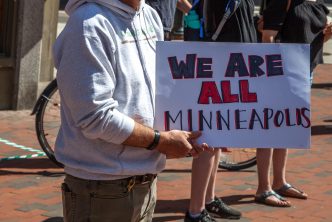What is happening at Ryerson is an absolute tragedy.
To unpack the conundrum, the first question to ask is “why do student unions matter”?
For many people outside the echo chamber of academia, student unions are no more than a slightly older version of your high school student council. The reality is that they are a junior version of a municipal government, and that distinction matters.

Student unions and the fees associated are not mandated – or shouldn’t be – by the institution that they are associated with. Instead, they get their power from the idea that the student body has a voice.
Students choose to elect representatives who will be liaisons with the administration of the institution and speak on behalf of student needs. Often this advocacy takes on a political tone as inequities and discrepancies come to light.
Across the province of Ontario alone, there are “over 45 student unions that have been operating for at least 30 years” said Kayla Weiler, of the Canadian Federation of Students – Ontario (CFS-O) in conversation with Defunct Mayhem.
These student unions represent hundreds of thousands of students. Each of these groups has an independently signed contract outlining how their school will collect fees on their behalf and respect the referendums the student group facilitates.
The student groups provide services and support that the schools can not or do not. It may seem like an exercise in mutual trust, but these added “bonuses” are often things used to recruit new students and the institutions would culturally flounder without them.
Saying this, the short answer is that it sets a dangerous precedent for schools that may want to do away with their “student voice.”
On Jan. 25, Ryerson University announced they would no longer recognize the Ryerson Student Union, partially citing the lack of a forensic audit from the 2018-19 year in which the RSU President was impeached. The audit was set to release Feb. 3.
When Ryerson cut ties with the RSU they severed a contract that was signed in 1986, calling it “out of date” on TVO’s The Agenda, and citing “many students” complaints about the current student government.

Jack Fisher/The Sheridan Sun
It appears that Ryerson’s administration is bargaining in bad faith. On that same episode of The Agenda, The Vice-Provost of Student Affairs, Jen McMillen, said she had engaged in a “full-year” of negotiation with the RSU and had seen no results.
Any administrator who engages with policy, especially with student groups, and says that “one year” is enough to determine that a policy re-write isn’t possible is either naive or lying.
One of the most unfortunate things I learned as a member of a student union was how painfully long policy writing and approval really takes.
Most PSE systems in Ontario, with their senates, boards of governors, and approval committees, are set up so that a quick policy will be passed in about a year-and-a-half, but a good policy will be passed in three or more years.
Anyway, I have a terrible knot in my stomach watching the Ryerson situation unfold. The University is on the precipice of seriously messing with the culture that comes with an organization that is decades old, and the experience of its staff.
While the RSU did hold elections this week, there’s no telling if the newly elected executive will ever truly come to term.
The RSU has sued Ryerson University over the withholding of fees, and that brings up the big elephant in the room.
It was confirmed on Monday, February 3rd at the RSU Semi-Annual General Meeting that the 2018-19 executive misspent about $99,000. In the Fall of 2018, Ryerson began withholding non-critical fees. This means that the RSU hasn’t had a serious income for nearly two years now.
Maybe restructuring how the RSU works is necessary, but according to Weiler, you can restructure without dismantling the student union. “like [the University of Guelph] CSA did, and it didn’t need to collapse the organization to do it,” she said.
The independent student voice that student unions represent is part of what makes the post-secondary institutions transparent.
With the loss, or corporate conversion, of a student union, you run the risk of ending up with a situation like the one at Sheridan College where there is no independent student press, and no independent student lobby group.
As one of the GTA’s largest universities, it would be an absolute tragedy for Ryerson to show that this is how they negotiate with students.






